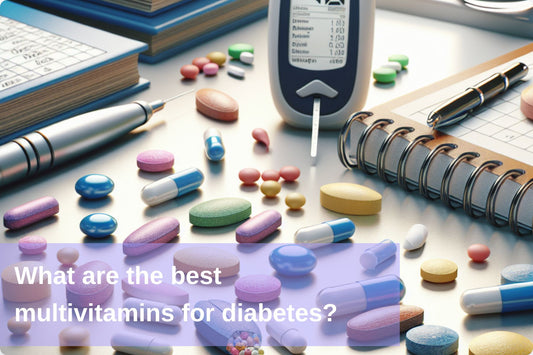The amount of glucose in our blood indicates our body's energy source. Monitoring sugar levels before meals is crucial for health. Stable sugar levels before breakfast and dinner are key for overall well-being. Fluctuations can impact energy levels and mood. Checking sugar levels helps with dietary choices. Good levels before meals aid in digestion and nutrient absorption. Monitoring sugar levels is vital for managing conditions like diabetes. Understanding how our body responds to food is important for a healthy eating routine. Tracking sugar levels before meals is essential for optimal health.
Factors affecting sugar level before eating food
Fasting: Fasting can impact blood sugar concentration, especially with extended periods of fasting, causing fluctuations in sugar levels.
Insulin Sensitivity: Individual insulin sensitivity plays a crucial role in how the body responds to sugar intake. Those with higher sensitivity may experience a more controlled rise in blood sugar after eating than those with lower sensitivity.
Types of Food Consumed: The type of food consumed before a meal can also influence sugar levels. Foods high in simple carbohydrates lead to a rapid spike in blood sugar, while meals rich in fiber and protein result in a more gradual increase.
By being aware of these factors, individuals can make informed dietary decisions to better manage their sugar levels before eating. This knowledge is particularly beneficial for individuals with diabetes or those seeking to improve their health through mindful eating habits.
Ideal sugar levels before breakfast, lunch, and dinner
The ideal sugar levels before breakfast, lunch, and dinner can vary depending on individual health conditions. It is essential to maintain balanced sugar levels before meals to support overall health and well-being. Before diving into the ideal levels, it's crucial to understand how these levels can fluctuate based on a person's unique circumstances.
Before breakfast, the recommended sugar level typically falls between 70-90 mg/dL for individuals without diabetes. However, for those with diabetes, the range might vary, and it is advisable to consult a healthcare provider for personalized guidance.
Moving on to lunch, the sugar levels before this meal should ideally remain consistent with the morning readings. It is essential to avoid drastic spikes or drops in sugar levels, as they can impact energy levels and overall health throughout the day.
-
Before dinner, the sugar levels should ideally be similar to the levels before lunch, maintaining stability and avoiding sudden fluctuations. Consistency in sugar levels before each meal plays a significant role in managing blood sugar effectively.
Fasting Blood Sugar Level (mg/dL)
Category
Less than 70
Hypoglycemia (Low)
70 - 99
Normal
100 - 125
Prediabetes (Impaired)
126 or higher
Diabetes
Understanding and keeping track of your sugar levels before eating are vital steps in managing your health, especially if you have diabetes. Regular monitoring and making informed choices about food intake can help in maintaining optimal sugar levels and lead to better overall health outcomes.
Importance of monitoring sugar levels before and after meals
Monitoring your sugar levels before and after meals is essential for effectively managing diabetes and ensuring overall health.
Importance of Monitoring Before Meals:
Checking your sugar levels before a meal provides insight into how your body may respond to the upcoming food intake. This proactive approach allows you to make informed decisions about your diet and medication, helping to maintain stable blood sugar levels throughout the day. Measuring your sugar levels before each meal gives you a baseline to work with, helping you understand the impact of different types of food and portion sizes on your blood sugar.
Importance of Monitoring After Meals:
Monitoring your sugar levels after meals is equally important as it shows how your body processes the food you've eaten and how your blood sugar responds post-meal. By tracking these levels, you can identify patterns, trigger foods, and make necessary adjustments to prevent sudden spikes or crashes in your blood sugar.
Regularly monitoring your sugar levels before and after meals promotes overall well-being by giving you valuable insights into your body's response to food, helping you make healthier choices, and putting you in control of your health journey.
Bottom line:
To sum up, checking our sugar levels before we eat is very important for our health and helps us control conditions like diabetes. In this blog, we have talked about why it's vital to keep an eye on our sugar levels and how it can affect our health. We have seen that checking our sugar levels before we eat helps us know if they are in the right range. By knowing our levels before breakfast, lunch, and dinner, we can make smart food choices that keep us healthy and avoid problems. The blog also discussed how fasting, insulin sensitivity, and the food we eat can change our sugar levels before meals. Understanding this can help us make changes to our lifestyle for better sugar levels. Monitoring sugar levels before and after meals is not only for people with diabetes; it is a good thing for everyone's health. By checking regularly, we can catch any changes, make adjustments, and stay away from health problems related to unstable sugar levels.
This Blog post is an initiative by DiabeSmart, to provide accurate and Nutritionist / Doctor approved information related to Diabetes. DiabeSmart is India's first Food brand designed specifically for Diabetics, that has been clinically tested on Diabetics and Pre-Diabetics to deliver 55% - 70% lower Sugar spikes. DiabeSmart is part of Lo! Foods - India's leading brand for Everyday Functional Health foods.











